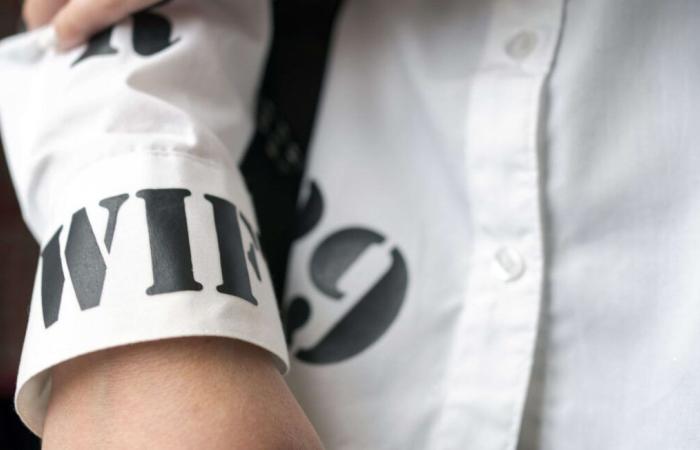Latest trend on TikTok or real symbol of resistance? In the wake of the American presidential elections, a movement is gaining momentum among Democratic women disappointed with the election of Donald Trump. These women, mostly white, wear blue “friendship bracelets”, a gesture inspired by the bracelets from Taylor Swift's Eras Tour. They wear it to signal their support for each other and their solidarity in the face of a political climate that they perceive as hostile to the rights of women and minorities.
This gesture provokes various reactions, ranging from total support to criticism, even mockery from the Republicans. While bracelet wearers see it as a symbol of support, their detractors denounce a performative, even ironic act, which raises questions about the real effectiveness of this approach.
A signal of trust and support
It all starts on the Chinese social network TikTok. Since the election of the Republican candidate last Tuesday, hundreds of videos abound every day with the hashtag #bluebracelet (blue bracelet in good French). We see American women who make or wear these famous blue “friendship” bracelets as a form of support between women sharing the same values, a means of recognition also to differentiate themselves.
The stated goal would be to simply but discreetly recognize who these women can trust, including those who oppose Trump's policies and who support the rights of women and minorities. As a reminder, Trump won 52% of their votes.
“Symbolize a sincere commitment”
The initiators of the blue bracelet movement describe it as “a movement of education and support” aimed at women, communities of color and LGBT. The group wants to provide a safe space where everyone, even those outside of these communities, can ask questions, learn about current policies and access trusted resources. They say the goal is not just to wear a bracelet to signal one's belonging, but to symbolize a sincere commitment to learning and improving.
This approach seeks to respond to past criticisms, notably those leveled against the safety pin movement of 2016, where symbols were not always followed by concrete actions against racism, sexism or homophobia . “We know we won't always be perfect,” organizers say, “but we will always give our best and strive to hold ourselves and our peers accountable. »
Republican reactions: mockery and irony
On social networks, many Republicans were quick to deride this movement. On X (formerly Twitter), some say they appreciate this “color code” which would allow them to more easily recognize those they consider “crazy”. Sarcastic comments also highlight what they perceive as an irony: several Democrats had previously criticized Trump's plans, comparing them to the dystopian universe of the novel adapted into series The Handmaid’s Talewhere women are assigned to rigid roles marked by specific colors. For these critics, it is paradoxical that these same women now create their own “color code” to recognize each other, reproducing the type of symbolism they had denounced.
By clicking on“I accept”you accept the deposit of cookies by external services and will thus have access to the content of our partners.
More information on the Cookie management policy page
I accept
«A simple gesture»
These critics are not the only ones to point out the limits of the blue bracelet as a symbol of support. Some voices, including among allies, consider that wearing the bracelet could prove performative if it is not accompanied by concrete actions. Critics believe that wearing a symbol, no matter how well-intentioned, is not enough to support marginalized communities. Instead, they call for tangible actions, such as supporting women of color in the workplace, denouncing racist or sexist behavior in those around them, and promoting inclusive policies through voting.






